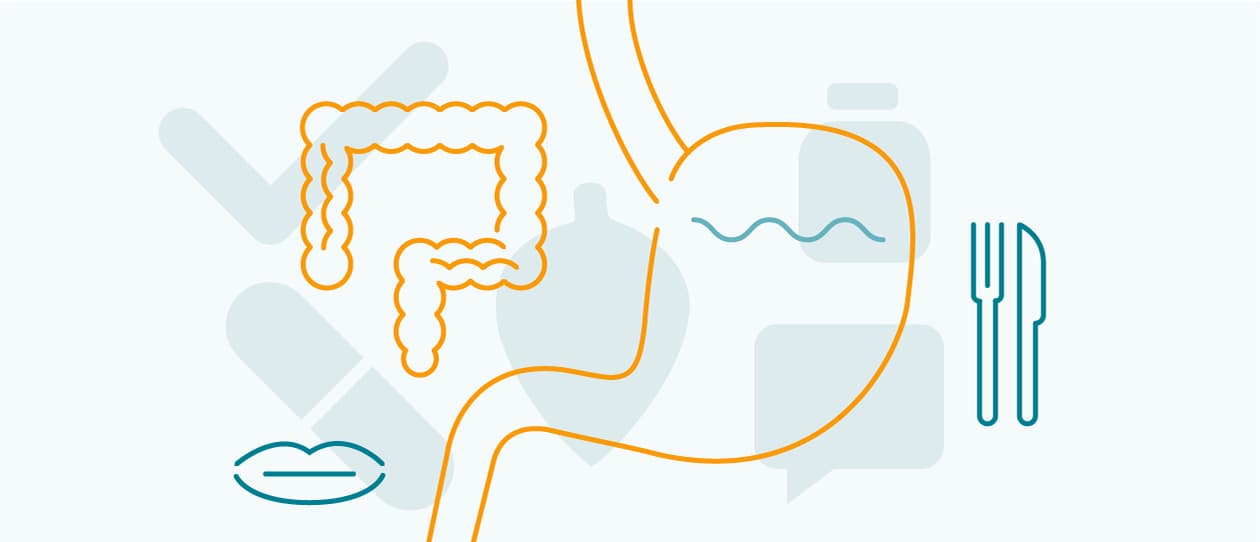


- Abdominal bloating and pain,
- Flatulence and belching (burping).
- Indigestion
A variety of factors can contribute to excessive gas, including:
- Swallowing air whilst eating and drinking, especially if we eat too fast or drink carbonated soft drinks or beer
- Incomplete or under-active digestive processes
- Eating raw foods (especially if this is not something you regularly do)
- Eating whilst under stress
- Consuming too much fat in a meal
- Introducing more high-fibre foods to the diet (this usually settles after the body has time to adapt to the new eating patterns)
- Eating legumes (e.g. beans and lentils), fermented foods and beverages including vinegar and alcohol, and foods rich in sulphur (e.g. eggs, onion and garlic)
- Gastrointestinal infection (particularly foul smelling wind, especially if accompanied by diarrhoea or stomach pains, should be investigated by your healthcare professional)
- Food allergy (such as lactose intolerance, or coeliac disease, which is an allergy to a protein found in wheat and other grains)
Be sure to chew your food thoroughly and eat slowly in order to keep your digestive system functioning healthily. Eating on the run and when under stress can lead to an imbalance of the various digestive juices and enzymes required for proper food breakdown and absorption and may contribute to gas.
Regular exercise stimulates digestion and promotes the re-absorption and expulsion of gas.
Drink fewer carbonated drinks such as soft drinks, soda water and beer. Avoid chewing gum and smoking as they promote the swallowing of air.
If you suspect you are allergic to milk, replacing cow's milk with soy milk may help. Supplementing your diet with lactase and/or probiotics may also reduce the flatulence.
Take the time to chew your meals properly in order to give your stomach time to prepare for the food's arrival by producing digestive juices.
Increase your fibre intake over a period of several weeks, and avoid legumes, fermented foods and foods rich in sulphur (eggs, garlic, onions).
Other food sensitivities may also cause flatulence - possible dietary culprits are best discussed with your health care professional.
Consult your health care professional if you have persistent, unexplained bloating for more than three days, severe abdominal pain or flatulence accompanied by sudden diarrhoea or weight loss.




